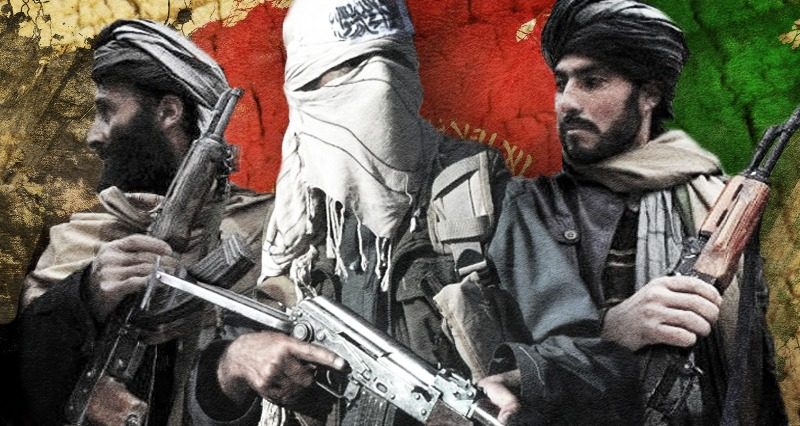On October 2, US diplomat Zalmay Khalilzad met with Taliban representative Mullah Abdul Ghani Baradar in Pakistan in order to revive the negotiations that were interrupted at the beginning of September. These negotiations were suspended by US President Donald Trump after a suicide attack killed one US solider, one Romanian soldier and 11 civilians in Kabul on September 5. [1] On September 2, 16 people, including two British citizens and a Romanian diplomat were killed in the Afghan capital. Other attacks followed on September 17 in Charikar and Kabul, killing 48. [2] The attack in Charikar took place during Afghan President Ashraf Ghani Ahmadzai’s visit with his local supporters during an electoral rally.
In mid-September, Taliban chief negotiator Sher Mohammad Abbas Stanikzai announced that his movement was ready to restart the negotiations. His proposal was supported by Pakistani Prime Minister Imran Khan who hosted a meeting held on October between Zalmay Khalilzad and Mullah Abdul Ghani Baradar. The resumption of these talks is not supported by the current Afghan government, as it provides legitimacy for the Taliban movement and their claims. Negotiations between the US and the Taliban officially started in 2018 after discreet meetings were held with senior Taliban representatives in Doha, Qatar.
US envoy #ZalmayKhalilzad arrives in #Islamabad#ARYNewshttps://t.co/PBpliFLgA2
— ARY News (@ARYNEWSOFFICIAL) October 1, 2019
The Afghan government was strongly opposed to the format of these talks and to the conditions set by the Taliban, such as the end of all foreign military support to the current Afghan government.
Following the Consultative Loya Jirga on Peace, the Afghan government considers itself the only legitimate actor and supervisor of any peace process. At the end of February 2018, Afghan President Ashraf Ghani Ahmadzai made his own peace plan proposal, but it failed to convince the Taliban who expressed their preference towards the US-led negotiations.
Since the inception of these negotiations in 2018, this strategy has been a way for the Taliban to insulate the Afghan government, to undermine its authority and to gain legitimacy– or at least influence. The negotiations are not only criticized by the Afghan government, but also by political groups and ethnic/religious minorities opposed to the Taliban, such as the Hazara. Unlike other similar negotiations, the US-Taliban talks took place in a very violent context with no effective ceasefire. In September 2019, the Taliban attacked a hospital in Qalat, killing 20 people and wounding 90 others, while in the Nangarhar province of the Khogyani district, a US air strike targeting ISIS fighters killed 15 civilians. [3] The September attacks were also preceded by a wave of violence : in August 2019, “at least 473 civilians were killed in the conflict” and, according to BBC estimates, “an average of 74 people were killed every day ”. [4]
The content of the draft deal discussed by the US and the Taliban have not been publicly disclosed. However the points set by Zalmay Khalilzad were supposed “to be agreed for a deal to go ahead” [5] including the withdrawal of all US and foreign military forces, anti-terrorism guarantees from the Taliban, the inclusion of the Afghan government in the talks and a permanent ceasefire.
Theoretically, these points can be considered rational and suitable proposals, but in practice they create even more challenges. The withdrawal of all US and foreign military forces will reduce pressure on the Taliban and deprive the Afghan government of important defensive capacities.
After years of training, the fighting capacities of the Afghan National Army have slightly improved but serious internal issues undermine its organizational and operational capacities. Corruption has generated various problems such as security breaches, the disclosure of classified information and the sale of military equipment. The Taliban have informants and supporters in the Afghan armed forces and security forces: numerous insider attacks (known as ‘green on blue’ attacks) were committed by Afghan soldiers against their foreign colleagues over the last 7 years. Afghan military and security forces are also affected by ethnic and religious division. In many Pashtun provinces, Afghan military or police units composed of Tajik and Hazara soldiers or officers are considered as occupying forces.
The inclusion of the Afghan government in the talks would be difficult as there are already several negotiation tracks opened and it should reassert its leadership and sovereignty over the whole process. The Taliban are opposed to this last point and wish to undermine the position of the Afghan government and reduce its influence over the process. Anti-terrorism guarantees from the Taliban and their commitment towards a permanent ceasefire spark skepticism among the members of the Afghan government and some of their Western partners. As the Taliban wish to deprive the Afghan government of any foreign military support in the future their commitment to a peaceful settlement of the conflict is not ensured: after the complete withdrawal of all foreign forces from the country, the Afghan government will be weaker and more easily subject not only to attacks from Taliban forces but also from local ISIS fighters.
A permanent ceasefire could be also easily disrupted by other political actors such as Afghan ’warlords’ opposed to the Taliban. These Afghan warlords have rearmed their militias over the last 7 years and are eager to fight any new rise of the Taliban to power. Taliban forces already control 40 to 60% of Afghani provinces and feel confident: they consider their long armed struggle a success, they are recognized as local political actors and are close to power. The Taliban could gradually seize parts of Afghanistan’s institutions and government through elections or political deals. They could also continue to use violence as a way to exert pressure or as a tool in negotiations but they could also use it in order to completely seize power in Kabul. Even if a deal was concluded between the USA and the Taliban, it would have to be supported by the Afghan government, which is highly unlikely in the current context and could spark a violent reaction from local political forces opposed to the Taliban. The withdrawal of foreign military forces and rise to power of the Taliban represents a threat to Afghan minorities such as the Hazara who fear they will be discriminated against again for their ethnic background and their Shiia Muslim beliefs. The commitment of Taliban leaders to a political deal can be only ensured by the genuine support and commitment of Pakistan, Saudi Arabia and Qatar… but this would entail a radical change in US foreign policy in the Middle East and in Central Asia. [6]
Sources
[1] Kate Clark, « Trump Ends Talks with the Taleban: What happens next? », Afghanistan Analysts Network, 08/09/2019 : https://www.afghanistan-analysts.org/trump-ends-talks-with-the-taleban-what-happens-next/
[2] « Taliban attacks kill 48, Afghan leader unhurt as bomber targets rally », Reuters, 17/09/2019 : https://www.reuters.com/article/us-afghanistan-election-blast/taliban-attacks-kill-48-afghan-leader-unhurt-as-bomber-targets-rally-idUSKBN1W20UA
[3] « Afghanistan war: Deadly Taliban attack ‘destroys’ hospital », BBC, 19/09/2019: https://www.bbc.com/news/world-asia-49751370
[4] Ibid.
[5] Kate Clark, « Trump Ends Talks with the Taleban: What happens next? », Afghanistan Analysts Network, 08/09/2019 : https://www.afghanistan-analysts.org/trump-ends-talks-with-the-taleban-what-happens-next/
[6] Gilles-Emmanuel Jacquet, « Back To The Afghan Future: Security Challenges Of Reconstruction And Development – Analysis », Eurasia Review, 18/03/2019 : https://www.eurasiareview.com/18032019-back-to-the-afghan-future-security-challenges-of-reconstruction-and-development-analysis/









Leave a Reply